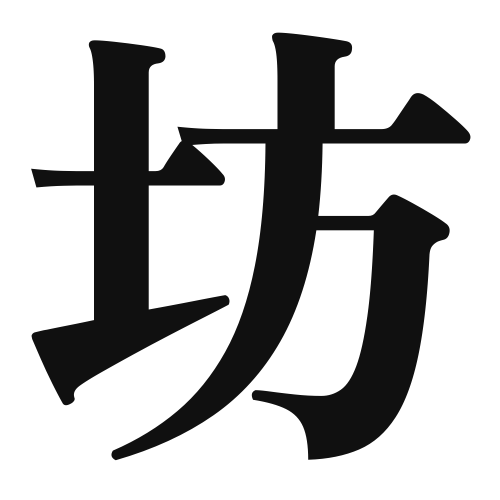1. Overview of Meaning
The kanji “坊” (bō) generally means “boy” or “young man.” It can also refer to a small room or a place where a specific activity takes place, such as a workshop or a temple.
2. Formation and Radical
The kanji “坊” is a phonetic-ideographic character (形声文字) that combines the meaning of a boy or young man with a phonetic component. The left part, “土” (tsuchi), represents earth or ground, while the right part, “方” (hō), suggests direction or a place.
The radical of “坊” is “土,” which relates to earth or ground, indicating a connection to physical spaces or foundations.
3. Examples of Usage
Common words and phrases that include “坊” are:
- 坊ちゃん (bōchan) – a term of endearment for a young boy or son.
- 坊主 (bōzu) – a monk or priest, often referring to a young monk.
Example sentence in daily conversation:
「彼はとても優しい坊ちゃんです。」(Kare wa totemo yasashii bōchan desu.) – “He is a very kind young boy.”
4. Synonyms and Antonyms
Similar kanji with related meanings include:
- 少年 (shōnen) – meaning “young boy,” but often used to refer to a boy in his teenage years.
- 男子 (danshi) – meaning “male” or “boy,” but can refer to boys of all ages.
Antonyms include:
- 女 (onna) – meaning “woman” or “female.”
- 少女 (shōjo) – meaning “young girl.”
5. Cultural and Historical Background
The kanji “坊” has cultural significance in Japan, often associated with young boys and their roles in society. In traditional contexts, it can refer to young monks or apprentices in various crafts.
Proverbs and idiomatic expressions that include “坊” are less common, but the term is often used in children’s stories and folklore, emphasizing the innocence and playfulness of youth.
